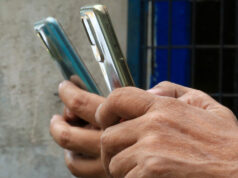Airbnb names PHL the world’s 2nd largest women-driven host community

ONLINE home-sharing platform Airbnb cited Filipino women as the powerhouse behind Philippine tourism, comprising 66% or two-thirds of Filipino Airbnb hosts in 2022, up from 62% the year prior.
This is higher than the 55% global average, according to recent data from Airbnb.
Aside from being the second-largest women-powered Airbnb host community globally after New Zealand, Filipino women Airbnb hosts also earned P2.5 billion last year.
Michelle Goh, Airbnb’s public policy head for Southeast Asia, India, Hong Kong, and Taiwan, said that this this contribution to the country’s tourism economy has grown because of Filipinas’ warm and welcoming nature, as well as the significant financial opportunity in hosting that they turn to amidst rising costs of living.
“Entrepreneurship is something that’s on the minds of women in the Philippines and there are increasingly more opportunities for them,” Ms. Goh told BusinessWorld on Tuesday.
“The past few years we’ve discovered that travelling and spending time with people that you love is really crucial. The resurgence that we saw in tourism is driving a lot of economic growth and it’s happening here in the Philippines,” she added.
Airbnb highlighted that domestic travel is a major driver of growth in the country, with destinations like Cebu, Siargao, and Coron continuing to trend domestically.
Ms. Goh said that the women host community is particularly vibrant in Metro Manila, where anyone from mothers to women under 30 are trying to earn from their properties.
“Here, they’re very forthcoming in sharing their tips with newer hosts so we see a lot of the exchange of ideas and support provided within the local host community,” she said.
Ann Jeaneth Casalme, a gender and development representative from the Philippine Commission on Women, said at the event that women being more visible in the tourism industry can help make it a safer and more empowering space for everyone.
Around 56% of solo travel nights were booked by women last year, according to Airbnb, which is more evidence of Filipino women being empowered by travel.
“The role of our commission is to oversee agencies and programs of the government and ensure that they’re beneficial for people of all genders,” Ms. Casalme said.
“When it comes to tourism development, promoting women entrepreneurship and advocating for the safety of women travelers can go a long way,” she added. — Brontë H. Lacsamana



